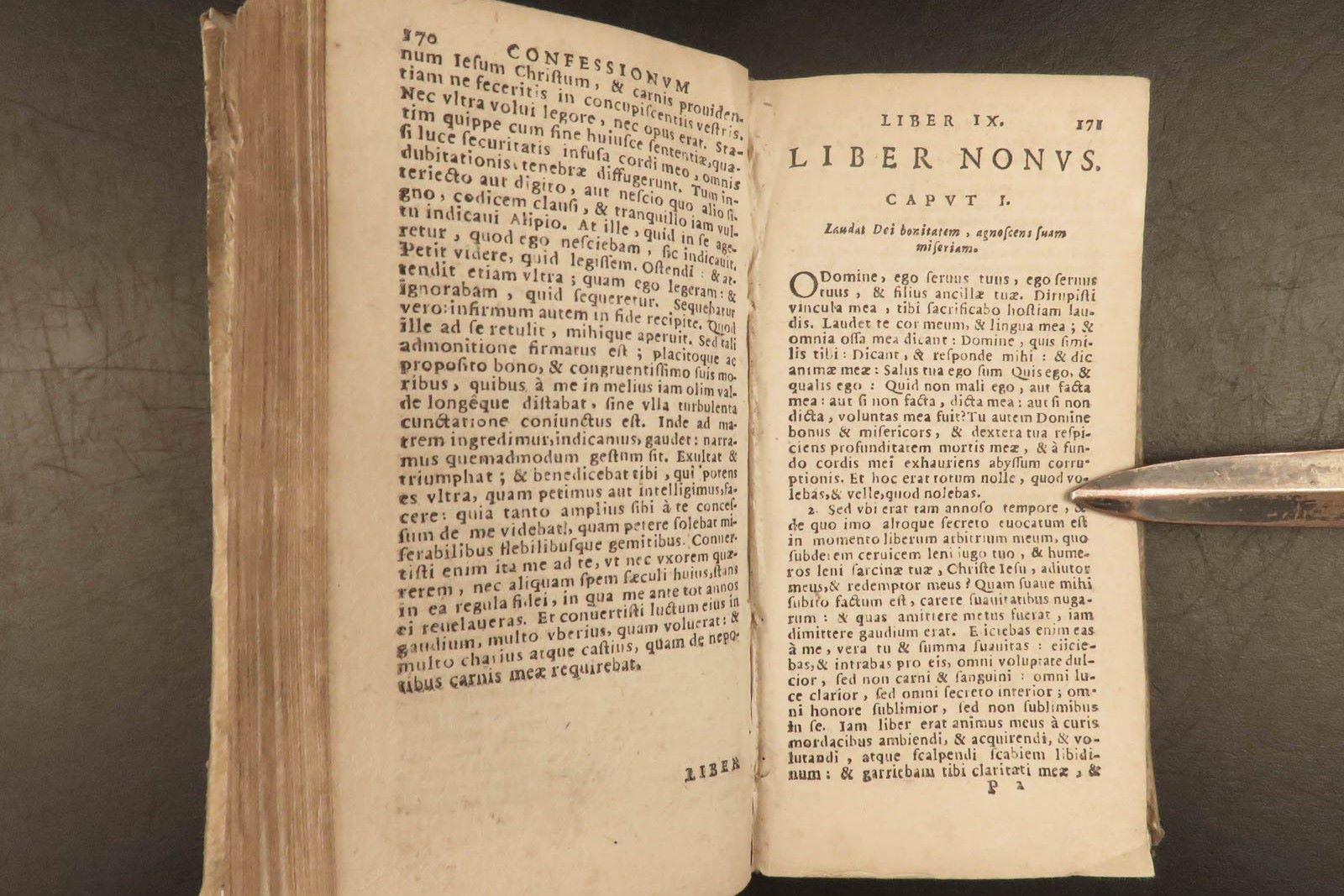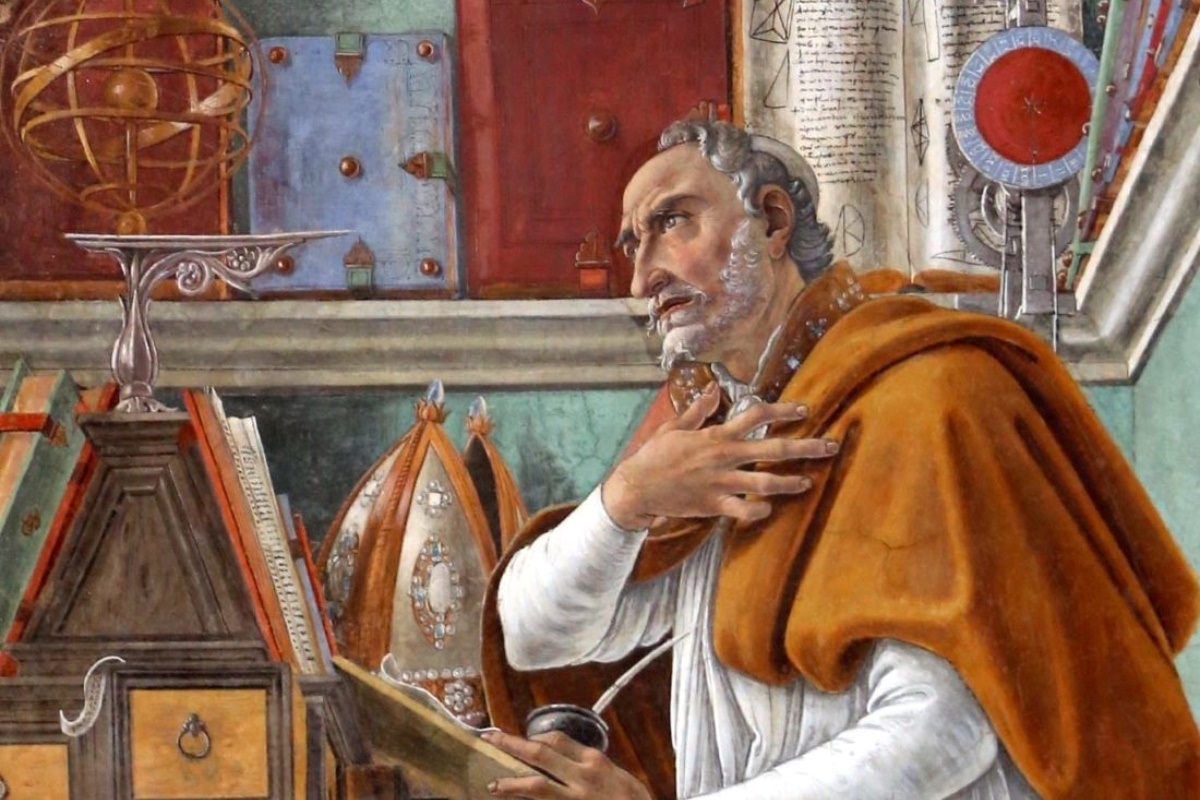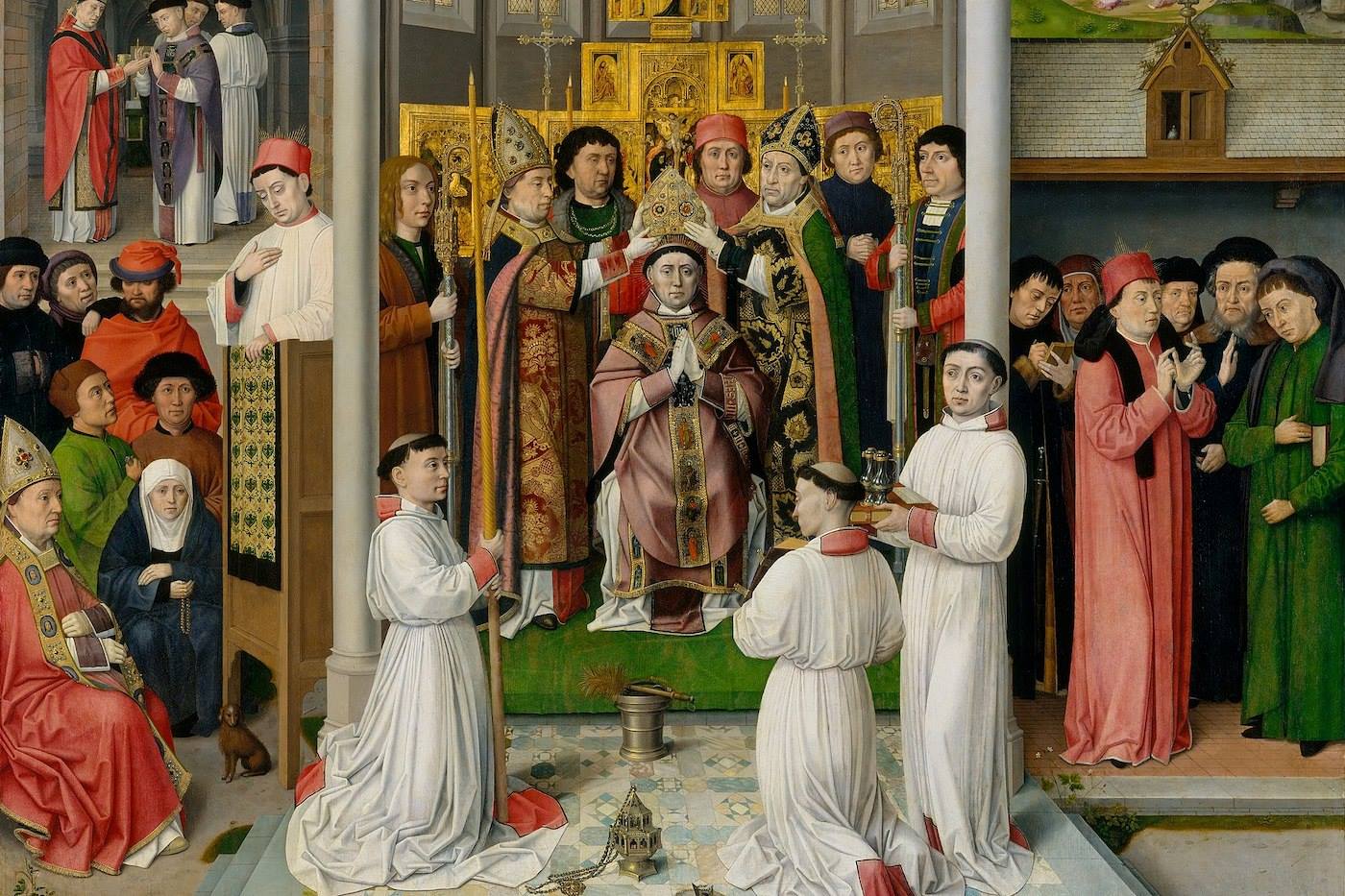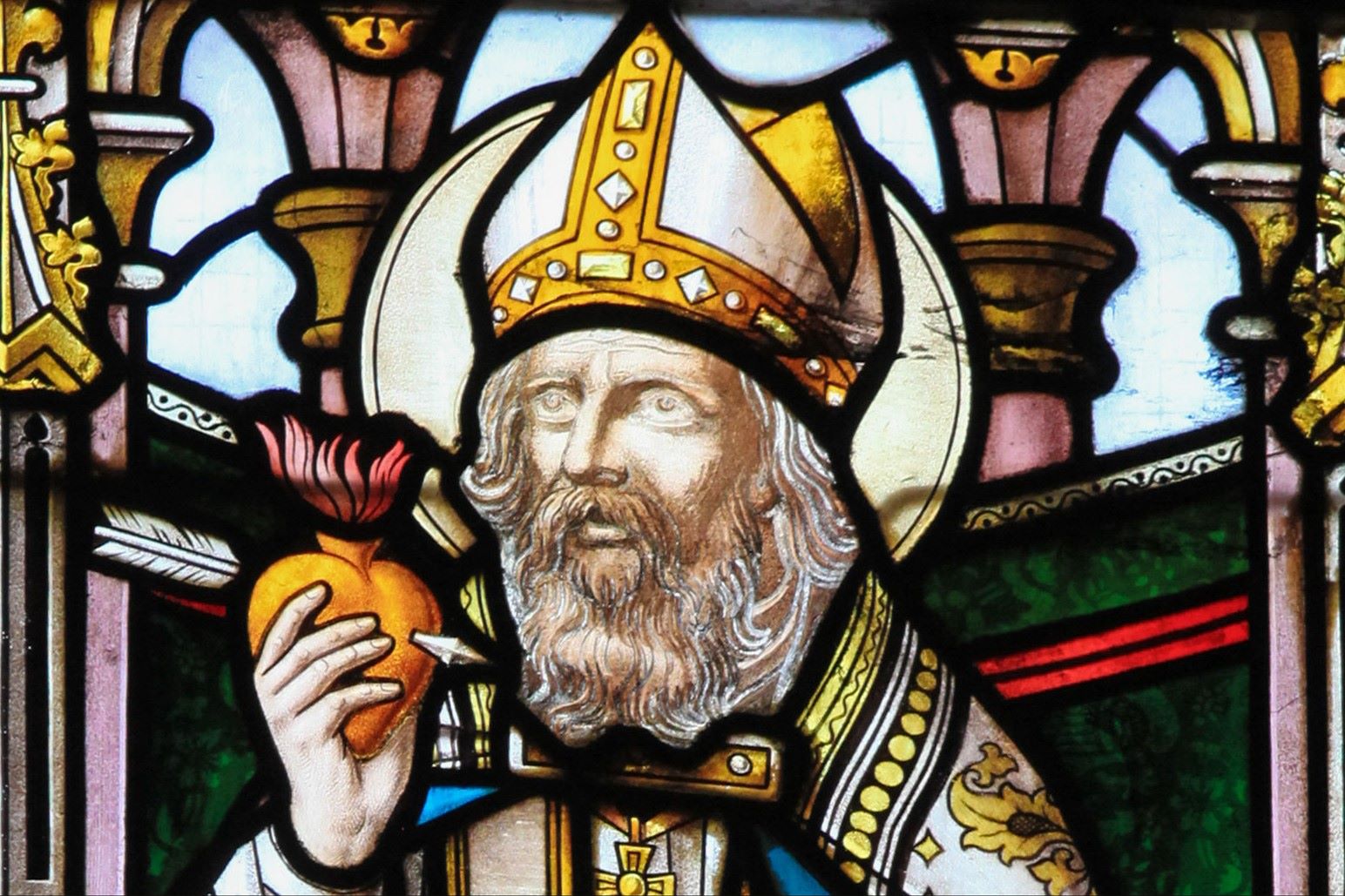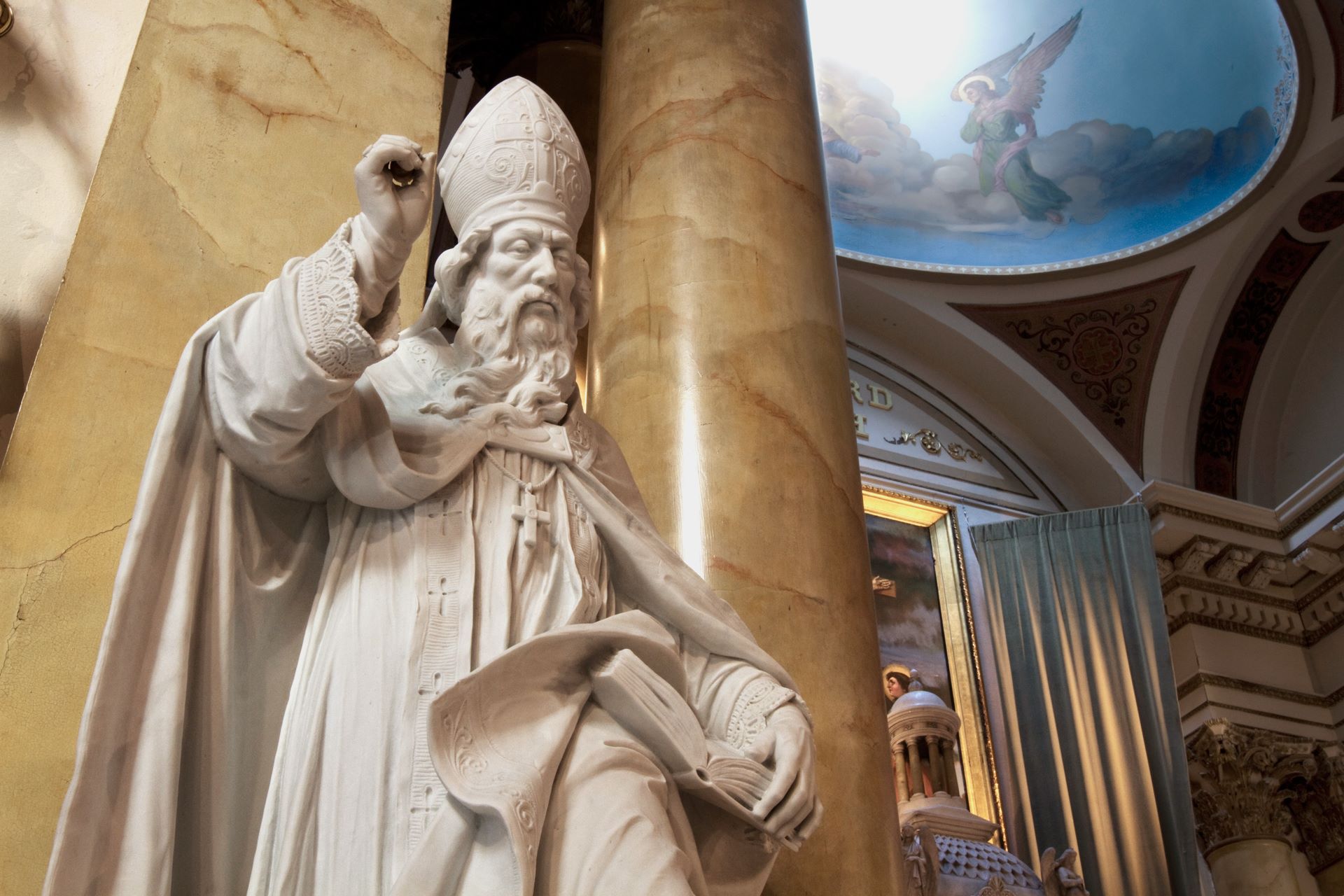Home>Theology and Spirituality>What Books Did Augustine Write
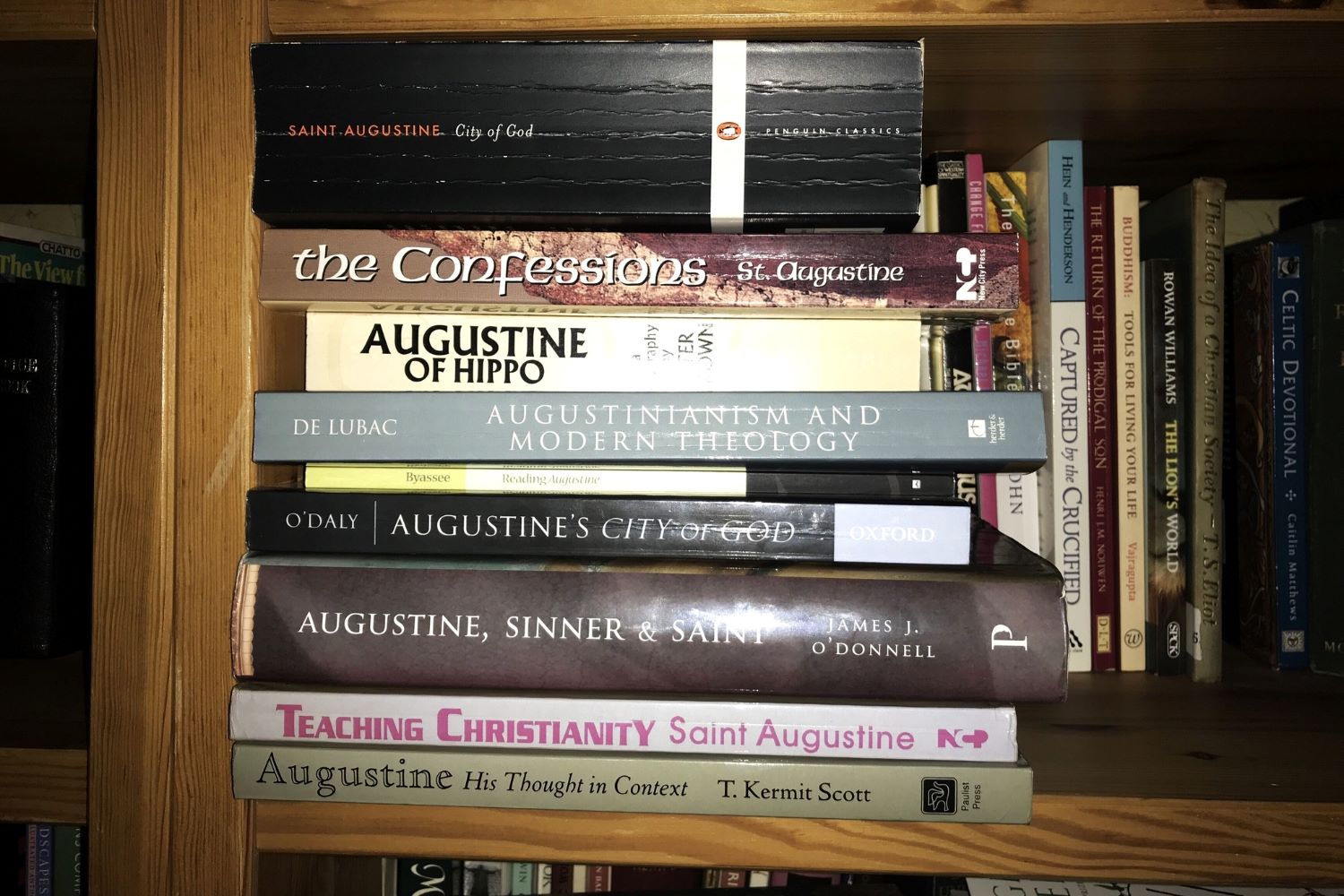

Theology and Spirituality
What Books Did Augustine Write
Published: February 10, 2024
Peter Smith, Editorial Director at Christian.net, combines deep insights into faith, politics, and culture to lead content creation that resonates widely. Awarded for his contributions to religious discourse, he previously headed a major organization for religious communicators, enhancing dialogue on faith's societal impacts.
Discover the theological and spiritual works of Augustine, including his influential writings on Christianity and philosophy. Explore his profound insights and teachings on theology and spirituality.
(Many of the links in this article redirect to a specific reviewed product. Your purchase of these products through affiliate links helps to generate commission for Christian.net, at no extra cost. Learn more)
Table of Contents
Introduction
Augustine of Hippo, also known as Saint Augustine, was a prolific writer and influential theologian of the early Christian church. His writings have had a profound impact on Western Christianity and continue to be studied and revered to this day. Augustine's literary legacy encompasses a wide range of topics, including theology, philosophy, spirituality, and morality. His works reflect his deep intellectual prowess, spiritual insights, and personal struggles, making them timeless treasures of wisdom and contemplation.
Throughout his life, Augustine penned numerous treatises, letters, sermons, and commentaries, addressing theological controversies, moral dilemmas, and the nature of God. His writings not only shaped the development of Christian doctrine but also delved into the complexities of human nature and the pursuit of a virtuous life. As we explore the diverse array of books authored by Augustine, we gain a profound understanding of his intellectual journey, spiritual evolution, and enduring relevance in the realm of Christian thought.
In the subsequent sections, we will delve into Augustine's most notable works, each offering unique insights into his theological perspectives and philosophical inquiries. From his early writings to his magnum opus, "The City of God," and his profound reflections on the Trinity, Augustine's literary contributions continue to inspire and challenge readers across the centuries. Let us embark on a journey through the pages of Augustine's timeless writings, discovering the enduring wisdom and profound spiritual truths that continue to resonate with seekers of truth and understanding.
Read more: When Did Augustine Write
Early Works
Augustine's early literary endeavors laid the foundation for his enduring influence on Christian theology and spirituality. During his formative years, he grappled with existential questions and philosophical inquiries, which are reflected in his early writings. One of his earliest works, "The Soliloquies," exemplifies his introspective exploration of the human soul and its yearning for truth and wisdom. In this philosophical dialogue, Augustine engages in a profound internal dialogue, pondering the nature of existence and the pursuit of knowledge.
Another significant early work is "On the Happy Life," in which Augustine reflects on the nature of happiness and the human longing for fulfillment. Drawing from classical philosophical traditions, he contemplates the essence of true happiness and the pursuit of a virtuous life. This introspective exploration foreshadows Augustine's later theological reflections on the nature of God and the human condition.
Furthermore, Augustine's "Against the Academics" represents his engagement with the skeptical philosophies of the time, particularly the teachings of the Academy. In this work, he grapples with the challenges posed by skepticism and defends the pursuit of knowledge and truth within the Christian framework. Augustine's intellectual prowess and philosophical acumen are evident in his early writings, laying the groundwork for his later theological masterpieces.
Additionally, Augustine's "On the Immortality of the Soul" delves into the enduring question of the soul's immortality and its relationship to the divine. In this treatise, he draws from both philosophical and Christian sources to articulate a compelling defense of the soul's eternal nature, intertwining his philosophical insights with theological convictions.
These early works showcase Augustine's intellectual curiosity, philosophical depth, and spiritual yearning, foreshadowing the profound theological contributions he would later make. They provide a glimpse into the formative years of a thinker whose writings continue to inspire and challenge readers, inviting them to embark on a journey of intellectual and spiritual discovery.
As Augustine's intellectual and spiritual journey unfolds, his early works serve as a testament to the enduring relevance of his ideas and the timeless appeal of his philosophical and theological inquiries.
Confessions
Augustine's "Confessions" stands as a timeless masterpiece of spiritual introspection and personal revelation. Written in the form of a prayerful dialogue with God, this profound work chronicles Augustine's journey of self-examination, repentance, and ultimate surrender to the divine. Composed in the early 5th century, "Confessions" is not merely an autobiography but a profound exploration of the human soul's quest for meaning, truth, and redemption.
The narrative unfolds as Augustine reflects on his tumultuous youth, his intellectual pursuits, and his gradual awakening to the profound truths of Christianity. Through vivid and introspective prose, he bares his inner struggles, moral failings, and the transformative power of divine grace. Augustine's candid account of his youthful indiscretions, intellectual pride, and spiritual restlessness resonates with readers across centuries, offering a poignant portrayal of the human condition and the universal longing for spiritual fulfillment.
"Confessions" also serves as a theological and philosophical tour de force, as Augustine grapples with profound questions about the nature of God, the problem of evil, and the complexities of human desire. His contemplations on the nature of time, memory, and the human will reveal a deep intellectual engagement with existential themes that continue to captivate scholars and spiritual seekers alike.
Moreover, "Confessions" is imbued with a profound sense of poetic beauty and spiritual fervor, as Augustine's lyrical prose evokes a sense of awe and reverence for the divine. His intimate conversations with God, expressed with raw emotion and unwavering honesty, invite readers to embark on their own journeys of self-examination and spiritual renewal.
As "Confessions" unfolds, Augustine's narrative transcends the boundaries of time and culture, offering a profound meditation on the human experience and the enduring relevance of divine grace. Through his unflinching self-revelation and unwavering faith, Augustine invites readers to confront their own inner struggles and embrace the transformative power of spiritual awakening.
In essence, "Confessions" stands as a testament to the enduring power of self-reflection, repentance, and the unyielding hope for spiritual renewal. Augustine's profound insights and intimate dialogue with the divine continue to resonate with readers, beckoning them to embark on a journey of self-discovery and profound spiritual transformation.
City of God
Augustine's magnum opus, "The City of God," stands as a monumental work that encapsulates his profound theological vision and enduring intellectual legacy. Composed in response to the sack of Rome in 410 AD, this monumental work spans twenty-two books and addresses the complex interplay between earthly events and the eternal order of God's providence. Augustine embarks on a comprehensive exploration of human history, the nature of earthly kingdoms, and the ultimate destiny of the City of God in contrast to the transient nature of earthly empires.
"The City of God" unfolds as a profound meditation on the nature of human society, the pursuit of earthly glory, and the transcendent reality of the heavenly city. Augustine meticulously examines the contrasting destinies of the City of God and the City of Man, elucidating the temporal struggles and ultimate futility of earthly pursuits in contrast to the eternal fulfillment found in divine communion. Through meticulous biblical exegesis and philosophical inquiry, Augustine weaves a compelling narrative that transcends the confines of historical context, offering timeless insights into the human condition and the enduring sovereignty of God's providence.
Furthermore, "The City of God" serves as a comprehensive apologetic work, addressing the challenges posed by pagan critics and skeptics in the wake of Rome's decline. Augustine skillfully defends the Christian faith, articulating a robust theological framework that reconciles the complexities of human history with the redemptive promise of divine grace. His profound reflections on the nature of evil, the problem of suffering, and the ultimate triumph of God's kingdom resonate with a timeless relevance, offering solace and intellectual rigor to generations of readers grappling with the complexities of faith and human existence.
Moreover, "The City of God" stands as a testament to Augustine's intellectual prowess and unwavering commitment to articulating a comprehensive Christian worldview. His profound insights into the nature of divine providence, the unfolding drama of human history, and the ultimate fulfillment of God's redemptive plan continue to inspire theologians, philosophers, and seekers of truth across the centuries. Through this monumental work, Augustine beckons readers to contemplate the enduring significance of the City of God and the transformative power of divine grace in the midst of temporal upheavals and eternal hope.
In essence, "The City of God" stands as a timeless testament to Augustine's enduring intellectual and spiritual legacy, inviting readers to embark on a profound journey of theological contemplation and spiritual renewal.
On Christian Doctrine
Augustine's treatise, "On Christian Doctrine," stands as a foundational work that continues to shape the principles of biblical interpretation and theological hermeneutics. Composed in the early 5th century, this seminal work offers profound insights into the principles of scriptural exegesis, the nature of divine revelation, and the ethical imperatives of Christian communication. At the heart of "On Christian Doctrine" lies Augustine's unwavering commitment to illuminating the transformative power of the Scriptures and guiding believers in their pursuit of spiritual understanding and moral discernment.
The treatise unfolds as a comprehensive guide to interpreting and communicating the message of the Bible within the Christian community. Augustine expounds on the principles of scriptural interpretation, emphasizing the centrality of love for God and neighbor as the guiding principle for understanding and applying the teachings of the Bible. He underscores the importance of humility, prayer, and spiritual discernment in approaching the sacred texts, advocating for a holistic engagement with the Scriptures that transcends mere intellectual inquiry.
Moreover, "On Christian Doctrine" delves into the ethical dimensions of communication and preaching, emphasizing the imperative of clarity, charity, and fidelity to the truth in conveying the message of the Gospel. Augustine's profound reflections on the art of persuasion, the ethical use of rhetoric, and the transformative power of eloquence underscore his commitment to nurturing a community of believers grounded in the virtues of love, truth, and moral integrity.
Furthermore, Augustine's treatise offers timeless insights into the nature of divine revelation and the redemptive narrative woven throughout the Scriptures. He illuminates the profound interconnectedness of the Old and New Testaments, guiding readers in discerning the overarching themes of God's redemptive plan and the transformative message of Christ's salvific mission. Through his meticulous exegesis and theological acumen, Augustine invites believers to embark on a profound journey of spiritual growth, moral discernment, and ethical communication rooted in the transformative power of the Gospel.
In essence, "On Christian Doctrine" stands as a testament to Augustine's enduring commitment to nurturing a community of believers grounded in the transformative power of the Scriptures and the ethical imperatives of Christian communication. His profound insights continue to inspire theologians, pastors, and believers, beckoning them to embrace a holistic approach to biblical interpretation and ethical communication that reflects the transformative love and truth of the Gospel.
Read more: Who Did Augustine Write Confessions For
The Trinity
Augustine's exploration of the doctrine of the Trinity stands as a profound testament to his theological acumen and unwavering commitment to articulating the complexities of the Christian faith. In his treatise on the Trinity, Augustine delves into the mysterious nature of the triune God, offering profound insights into the interplay of divine unity and plurality within the Godhead.
At the heart of Augustine's reflections on the Trinity lies a deep reverence for the ineffable nature of God's triune existence. He grapples with the profound mystery of the Father, Son, and Holy Spirit, seeking to elucidate the divine unity and distinction within the eternal Godhead. Augustine's contemplations on the Trinity transcend mere intellectual inquiry, inviting readers to embark on a profound journey of spiritual contemplation and awe-inspiring reverence for the transcendent nature of God.
Moreover, Augustine's treatise on the Trinity serves as a comprehensive theological framework that continues to shape the foundational principles of Christian orthodoxy. His meticulous exegesis of biblical passages and philosophical inquiries into the nature of divine unity and plurality offer timeless insights into the complexities of the Trinity. Augustine's profound reflections on the relational dynamics within the Godhead and the eternal procession of the divine persons underscore his unwavering commitment to articulating a coherent and intellectually rigorous understanding of the Trinity.
Furthermore, Augustine's contemplations on the Trinity resonate with a timeless relevance, offering profound insights into the nature of divine love, communion, and the redemptive mission of Christ. His theological reflections on the mutual indwelling of the divine persons and the eternal generation of the Son illuminate the profound interconnectedness of the Trinity with the redemptive narrative woven throughout the Scriptures. Augustine's treatise beckons readers to contemplate the transformative implications of the Trinity for their spiritual lives, inviting them to embrace a profound sense of awe and reverence for the triune God.
In essence, Augustine's treatise on the Trinity stands as a timeless testament to the enduring significance of the triune God in the Christian faith. His profound insights continue to inspire theologians, scholars, and believers, beckoning them to embark on a profound journey of theological contemplation and spiritual renewal rooted in the transformative mystery of the Trinity.
The Enchiridion
The Enchiridion, a concise yet profound work attributed to Augustine of Hippo, encapsulates the essence of Christian faith and moral philosophy. Composed as a handbook of Christian doctrine and ethics, this seminal text offers timeless insights into the foundational principles of Christian living and spiritual resilience. The title "Enchiridion," derived from the Greek word for "handbook," underscores the practical and accessible nature of the work, intended to serve as a guide for believers navigating the complexities of faith and moral discernment.
At the heart of The Enchiridion lies Augustine's unwavering commitment to articulating the transformative power of Christian faith in the face of adversity and moral challenges. He expounds on the virtues of humility, love, and spiritual resilience, guiding readers in cultivating a steadfast commitment to the principles of Christian ethics. Augustine's reflections on the nature of evil, the pursuit of virtue, and the redemptive promise of divine grace permeate the text, offering profound insights into the moral imperatives of Christian living.
Moreover, The Enchiridion serves as a beacon of hope and moral guidance, inviting readers to embrace a life rooted in the transformative love and truth of the Gospel. Augustine's contemplations on the nature of faith, the pursuit of moral integrity, and the enduring hope found in divine providence resonate with a timeless relevance, offering solace and moral fortitude to generations of believers grappling with the complexities of human existence.
Furthermore, The Enchiridion stands as a testament to Augustine's enduring legacy as a moral philosopher and theologian, beckoning readers to embark on a profound journey of spiritual growth and ethical discernment. His timeless insights continue to inspire theologians, pastors, and believers, inviting them to embrace a holistic approach to Christian living that reflects the transformative love and truth of the Gospel.
In essence, The Enchiridion stands as a timeless testament to the enduring significance of Christian ethics and spiritual resilience. Augustine's profound insights continue to inspire readers, beckoning them to embrace a life of moral integrity, spiritual fortitude, and unwavering hope rooted in the transformative love and truth of the Gospel.
Retractions
"Retractions" stands as a unique and introspective work in Augustine's literary corpus, offering a profound glimpse into the theologian's intellectual and spiritual journey. Composed near the end of his life, this reflective text represents Augustine's sincere reevaluation of his earlier writings and the evolution of his theological perspectives. In "Retractions," Augustine engages in a candid and introspective dialogue with his readers, acknowledging the nuances and complexities inherent in the pursuit of theological truth.
The work unfolds as a testament to Augustine's intellectual humility and unwavering commitment to truth-seeking, as he meticulously revisits his earlier treatises, sermons, and theological reflections. Through a series of retractions and clarifications, Augustine demonstrates a profound willingness to confront the limitations of his earlier writings and to refine his theological positions in light of deeper insights and spiritual maturation.
Moreover, "Retractions" serves as a testament to Augustine's enduring commitment to intellectual rigor and the pursuit of theological coherence. His candid reflections on the nuances of Christian doctrine, biblical interpretation, and moral discernment underscore his unwavering dedication to articulating a comprehensive and intellectually robust framework for Christian faith and practice. Augustine's willingness to engage in self-critical examination and to offer retractions where necessary reflects his profound reverence for the transformative power of divine truth and the redemptive promise of spiritual growth.
Furthermore, "Retractions" invites readers to embark on a journey of intellectual and spiritual contemplation, embracing the complexities and nuances inherent in the pursuit of theological understanding. Augustine's introspective dialogue beckons readers to confront the dynamic nature of theological inquiry and the enduring relevance of humility and openness in the pursuit of truth. Through his retractions and clarifications, Augustine offers a compelling example of intellectual integrity and spiritual resilience, inspiring readers to embrace a posture of continual growth and refinement in their own theological and spiritual journeys.
In essence, "Retractions" stands as a timeless testament to Augustine's unwavering commitment to intellectual humility, truth-seeking, and the transformative power of spiritual maturation. His introspective reflections continue to inspire theologians, scholars, and seekers of truth, beckoning them to embrace a posture of openness and humility in the pursuit of theological understanding and spiritual growth.
Conclusion
In conclusion, Augustine of Hippo's literary legacy stands as a testament to his enduring influence on Christian theology, spirituality, and moral philosophy. From his early philosophical dialogues to his monumental treatises on the Trinity and the City of God, Augustine's writings continue to inspire and challenge readers across the centuries. His profound insights into the human condition, the nature of divine grace, and the complexities of faith offer timeless wisdom and spiritual guidance to seekers of truth and understanding.
Through his seminal work "Confessions," Augustine invites readers to embark on a profound journey of self-examination, repentance, and spiritual renewal. His candid account of personal struggles and unwavering faith resonates with a universal longing for meaning and redemption, inviting readers to confront their own inner struggles and embrace the transformative power of divine grace.
Moreover, "The City of God" stands as a monumental testament to Augustine's unwavering commitment to articulating a comprehensive Christian worldview. His profound reflections on the nature of divine providence, the problem of evil, and the ultimate destiny of the City of God offer solace and intellectual rigor to generations of readers grappling with the complexities of faith and human existence.
Additionally, Augustine's treatise on the Trinity offers timeless insights into the mysterious nature of the triune God, inviting readers to contemplate the transformative implications of the Trinity for their spiritual lives. His unwavering reverence for the ineffable nature of the divine invites readers to embrace a profound sense of awe and reverence for the transcendent nature of God.
Furthermore, "Retractions" serves as a testament to Augustine's enduring commitment to intellectual humility and the pursuit of theological coherence. His introspective dialogue with his readers reflects his profound reverence for the transformative power of divine truth and the redemptive promise of spiritual growth, inspiring readers to embrace a posture of continual growth and refinement in their own theological and spiritual journeys.
In essence, Augustine's writings continue to resonate with a timeless relevance, offering profound insights into the human experience, the transformative power of divine grace, and the enduring hope found in the Christian faith. His enduring legacy as a theologian, philosopher, and spiritual guide beckons readers to embark on a profound journey of intellectual and spiritual discovery, embracing the transformative love and truth of the Gospel.




